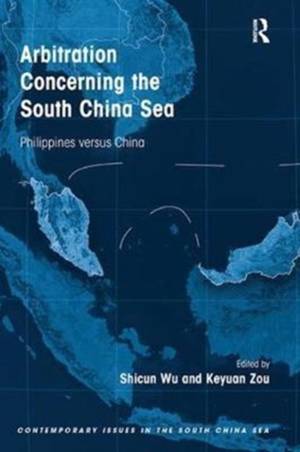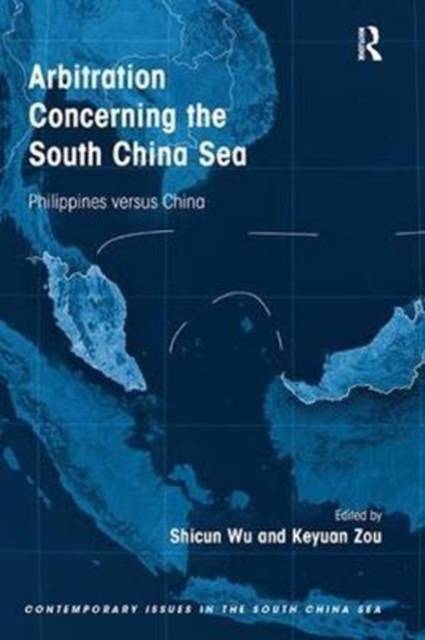
En raison d'une grêve chez bpost, votre commande pourrait être retardée. Vous avez besoin d’un livre rapidement ? Nos magasins vous accueillent à bras ouverts !
- Retrait gratuit dans votre magasin Club
- 7.000.000 titres dans notre catalogue
- Payer en toute sécurité
- Toujours un magasin près de chez vous
En raison de la grêve chez bpost, votre commande pourrait être retardée. Vous avez besoin d’un livre rapidement ? Nos magasins vous accueillent à bras ouverts !
- Retrait gratuit dans votre magasin Club
- 7.000.0000 titres dans notre catalogue
- Payer en toute sécurité
- Toujours un magasin près de chez vous
60,95 €
+ 121 points
Format
Description
On 22 January 2013, the Republic of the Philippines instituted arbitral proceedings against the People's Republic of China (PRC) under the United Nations Convention on the Law of the Sea (UNCLOS) with regard to disputes between the two countries in the South China Sea. The South China Sea Arbitration is a landmark case in international law because of the parties involved, the legal questions to be decided and the absence of one of the parties. As revealed in its official statements, the PRC will neither accept nor participate in this arbitration nor present written and oral arguments in the tribunal room. Such default of appearance makes applicable certain procedural rules. According to Article 9 of Annex VII, the Tribunal, before making its Award, is obligated to satisfy itself not only that it has jurisdiction over the dispute, but also that the claims brought by the Philippines are well-founded in fact and law. Therefore, it is necessary for the Tribunal to look into all the claims brought forward by the Philippines and all the disputes constituted by the claims in the procedural phase. The possible arguments the PRC could make should be explored during this process. This book brings together chapters selected from well-established scholars in Asia, Europe and North America addressing the issues arising from the South China Sea Arbitration. It contains five easy to read parts: origin and development of the South China Sea dispute; the jurisdiction and admissibility of the case; international adjudication and dispute settlement; legal issues arising from the case such as the legal status of the U-shaped line and islands, rocks and low-tide elevations; and the Arbitration case and its impact on regional maritime security.
Spécifications
Parties prenantes
- Auteur(s) :
- Editeur:
Contenu
- Nombre de pages :
- 290
- Langue:
- Anglais
- Collection :
Caractéristiques
- EAN:
- 9781138309197
- Date de parution :
- 16-06-17
- Format:
- Livre broché
- Format numérique:
- Trade paperback (VS)
- Dimensions :
- 156 mm x 233 mm
- Poids :
- 430 g

Les avis
Nous publions uniquement les avis qui respectent les conditions requises. Consultez nos conditions pour les avis.






